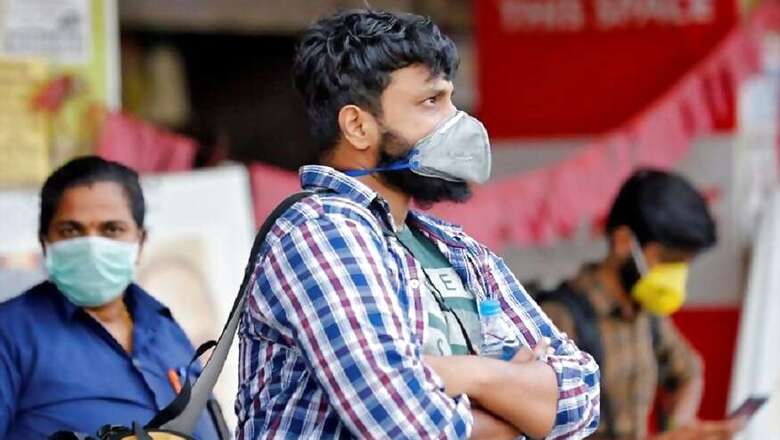
views
New Delhi: In roughly a month since three medical students, who had tested positive for Covid-19 upon their return from China’s Wuhan, were discharged from a government hospital, Kerala has reported 14 new cases, the maximum among all states in India.
Kerala’s health department though has buckled up and is following a rigorous protocol to tackle and contain the contagious disease.
Top serving and retired health officials confirmed to News18.com that the state is making efforts to trace those who landed in Kerala from the epicentre of Covid-19 around two weeks ago. This is being done in addition to the universal screening of travellers who have returned from coronavirus-affected countries, and tracing their contacts to check for symptoms. The Centre ordered universal screening of travellers at all international airports, certain smaller airports and seaports on March 4.
Dr Rajan N Khobragade, Principal Secretary, Department of Health and Family Welfare said the state is following a multi-pronged approach to screen and trace suspected cases of Covid-19. Khobragade said efforts are underway to track those who landed from affected countries two to three weeks before March 4, when universal screening began.
“The Bureau of Immigration is sharing the data with us. That forms the key basis to trace people to go with the screening at airports. There is a system of voluntary disclosure at the airports. We have asked our local civic bodies and field workers from the health department to keep a tab on communities for people who have returned from abroad,” said Khobragade.
A general advisory was already in place that those who returned from abroad should disclose details voluntarily and contact the state helpline.
Speaking on the first batch of three cases, Khobragade said, “When the medical students returned from Wuhan, they had disclosed about their travel voluntarily and they followed advisories on home isolation closely. That is why no other family members were affected. We should have followed the Wuhan approach for all affected countries, but now, we have to try and track those who came in earlier.”
As on Wednesday evening, the state had placed 3,313 persons under surveillance, out of whom 3,020 were under home isolation and 293 were admitted in designated isolation facilities.
Till Wednesday evening, 1,179 samples of suspected cases were sent to the National Institute of Virology, Pune, of which 889 samples returned negative, the state's bulletin on Covid-19 stated.
On Wednesday, the state's health department also put out a detailed flow chart of the places and time at which coronavirus patients visited in Pathanamthitta district. The department listed out the places and appealed to people to get in touch on the two helpline numbers if they had visited those places at the given time.
No other state put out such information.
Rajeev Sadanandan, a retired bureaucrat who was the state’s health secretary during the 2018 Nipah outbreak, said all that can be done during the ongoing crisis is reduce the number of infections as much as possible.
Reflecting on the Centre’s advisories and actions, he said the response has been to follow the epidemic on the basis of its spread across countries. This is the reason, he says, travel and screening advisories were limited to Asian countries in the beginning and were later expanded to all countries.
“You cannot go back and screen all the people who came during earlier periods. But what state governments can do is tell people who came in earlier to self-quarantine upon developing symptoms and to alert health authorities about it. Kerala is running a tight surveillance system. However, unless people cooperate the government cannot make a difference,” he said.
“Most of the people who are testing positive for Covid-19 have a connection with the epicentre. This means that, as of now, the community spread has not happened and that is a good sign. However, in public health we must always be prepared for the worst,” Sadanandan added.




















Comments
0 comment